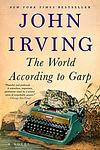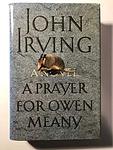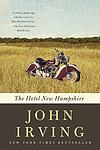John Irving
John Irving is an American novelist and screenwriter known for his intricate plots and engaging characters. Born on March 2, 1942, in Exeter, New Hampshire, he achieved critical and popular acclaim with his fourth novel, 'The World According to Garp,' which won the National Book Award in 1980. Irving's work often explores themes of fate, sexuality, and identity, and he is also recognized for 'A Prayer for Owen Meany' and 'The Cider House Rules,' the latter of which he adapted into a screenplay that won an Academy Award. His storytelling is marked by a blend of humor and tragedy, often reflecting his own experiences and observations of American society.
Books
This list of books are ONLY the books that have been ranked on the lists that are aggregated on this site. This is not a comprehensive list of all books by this author.
-
1. The World According to Garp
The novel follows the life of T.S. Garp, the illegitimate son of a feminist mother, who becomes a writer. Garp's life is filled with unusual experiences and characters, from his unconventional conception to his untimely death. He navigates through a world filled with sexual violence, infidelity, and gender issues, and his life story is punctuated by his own literary creations. His mother's feminist ideals and the tragic events of his life deeply influence his writing and worldview.
-
2. A Prayer for Owen Meany
The book is a tale of two childhood friends, one of whom believes he is God's instrument. The story is set in a New England town during the 1950s and 1960s and follows the lives of the two boys, one small and with a strange voice, who has visions of his own death and believes he is an instrument of God, and the other, the narrator, who struggles with faith. The novel explores themes of faith, fate, and the power of friendship against a backdrop of historical and political events, including the Vietnam War.
-
3. The Cider House Rules
This novel tells the story of Dr. Wilbur Larch—saint and obstetrician, founder and director of the orphanage in the town of St. Cloud's, Maine, and a man of rare compassion and an addiction to ether. Dr. Larch loves all his orphans, especially Homer Wells, who is never adopted and becomes his invaluable apprentice. As Homer comes of age, he must leave the only home he's ever known to explore the world outside, a world filled with temptations and moral dilemmas, from the struggle over abortion to the question of what constitutes a family.
-
4. The Hotel New Hampshire
The novel follows the Berry family, whose eccentricities and resilience are tested over generations, particularly through their experiences running various incarnations of the eponymous hotel. From their original establishment in New England to a second in Vienna, the Berrys encounter a cast of quirky characters, endure tragedies, and navigate complex relationships. Themes of love, loss, and the pursuit of dreams are explored against a backdrop of political and social upheaval, with the family's unique motto, "Keep passing the open windows," serving as a refrain for their determination to persevere in the face of life's absurdities and challenges.



